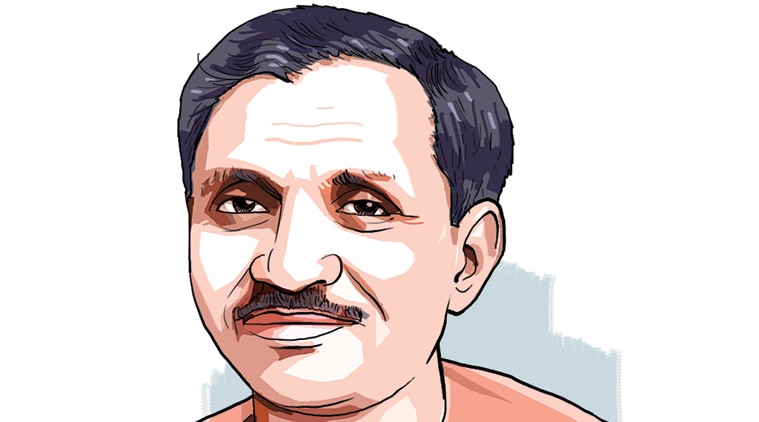- India
- International
An Idealist, An Ideologue
Deendayal Upadhyaya transformed the Jana Sangh into a cadre party.
 Deendayal Upadhyay.
Deendayal Upadhyay.
September 25 will mark the launch of a new icon on India’s political horizon. A year-long centenary celebration of Pandit Deendayal Upadhyaya’s birth is being planned by the Narendra Modi government. This will see many welfare schemes, research, workshops, seminars and books in all Indian languages and English. A number of films on his life will be shown during the year. Narendra Modi will formally inaugurate the event at the National Council meet of the BJP at Kozhikode on September 24, releasing an 11-volume compilation of Complete Works of Deendayal by Mahesh Sharma in Delhi on October 9.
Upadhyaya is to BJP what Mohandas Karamchand Gandhi was to Congress. Maybe due to the simple life he lived, or the Sangh Parivar’s reticence, the man who gave the slogans ‘Charaiveti, Charaiveti’ (move on, move on) and ‘Har haath ko kaam, har khet ko paani’ (work for every hand, water for every field) remained relatively unknown.
However, from a fledgling, fund-less, leader-less collection of inspired individuals thirsting for change after Syama Prasad Mukherjee’s martyrdom, Upadhyaya nurtured the Jana Sangh into a cadre-based organisation. Under him, the Jana Sangh first tasted power in more than half a dozen states, proving for the first time that the Congress is not invincible — a good ideological formulation can replace the Congress. This was in 1967, after the fourth general election.
Upadhyaya was a reluctant politician, more at ease as an RSS pracharak. But Guruji Golwalkar gave him the task of building an alternative to the Congress for the Jana Sangh was the only outfit which wasn’t an offshoot or splinter from Congress. He conceived, with Ram Manohar Lohia, Charan Singh, Vijayaraje Scindia, etc., the idea of non-Congress coalition politics that formed SVD governments in all north Indian states. He engineered the emergence of the Jana Sangh as an alternative to the Congress.
He was also an idealist and ideologue. He placed the Jana Sangh on the foundations of Integral Humanism. At the All India Session of Jana Sangh in Kozhikode in 1967, Upadhyaya was elected party president. He turned traditional politics on its head — a ‘Bhai bhatija, chacha mama’, family and feudal-oriented polity was replaced with worker-centric, service and mission format politics. He wasn’t bewitched by socialism or capitalism. He looked for fresh — and nationalist — alternatives.

He defined the Jana Sangh around the four pillars of antyodaya, cultural nationalism, territorial integrity and one India, one people. He proved to be a visionary: His theory of antyodaya, welfare of the last man in the queue, guiding principle of the ruling party today. Upadhyaya placed man at the centre of his template. He was clear the alternative to the Congress has to be different.
Upadhyaya was born on September 25, 1916, at village Nagla Chandrabhan, near Mathura, in UP. He was orphaned at the age of seven. His grandfather and later, his maternal uncle and aunt who looked after him, also passed away before he was 10. His was a troubled, poverty-stricken childhood which offered neither chance, nor hope — yet, like our prime minister, against all odds Upadhyaya created history. He was a gold medalist student, took a post-graduate degree and plunged into national service, heading many movements including for the liberation of Goa, against cow slaughter, for abolition of zamindari and against the surrender of Kutch to Pakistan.
Upadhyaya was a prolific writer and editor, instrumental in launching the monthly Rashtradharma, weekly Panchjanya and daily Swadesh. He wrote many books including Samrat Chandragupt and Jagatguru Shankaracharya, an analysis of Five Year plans in India and Political Dairy, a compilation of his Organiser column.
No other contemporary of Upadhyaya left such a lasting trail on politics, attracting thousands of youngsters to carry on his legacy. Rooted in Indian ethos, it was further moulded by several eminent social and political leaders and thinkers of the country.
EXPRESS OPINION
More Explained
Apr 20: Latest News
- 01
- 02
- 03
- 04
- 05









































